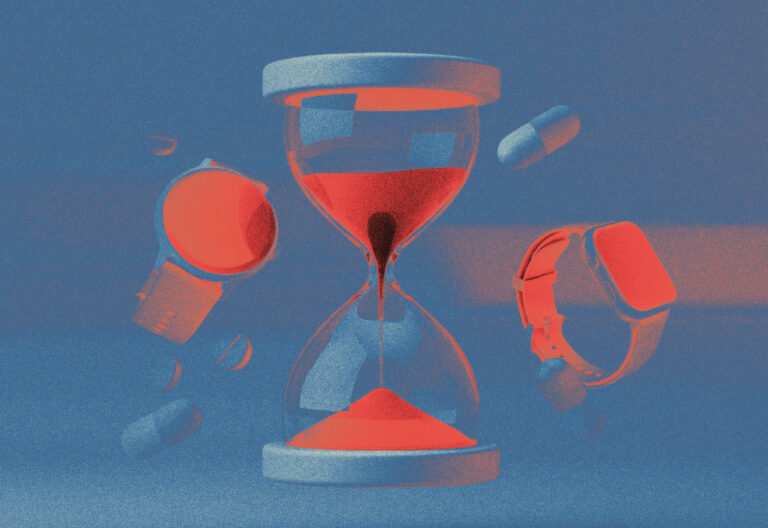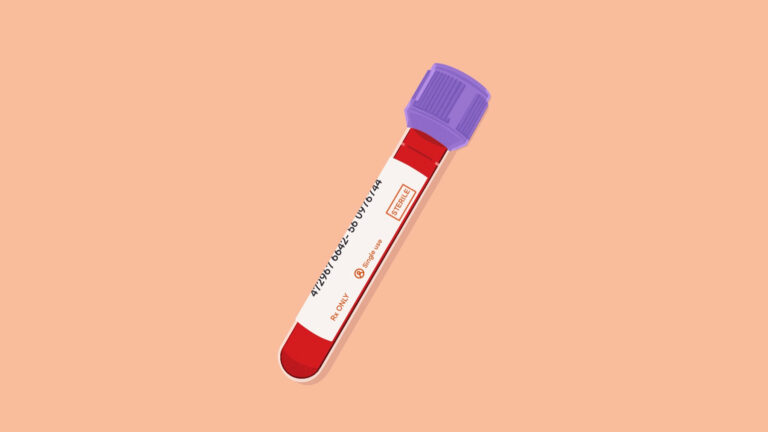Long before it became a billion-dollar industry, physical fitness was thought of as being central to the nation’s vitality.
From economic productivity and national defense to the pursuit of happiness, physical vigor was a rallying cry for leaders like Theodore Roosevelt — who embodied “the strenuous life” he advocated for.
In recent decades, as we evolved from an arduous existence to an increasingly sedentary lifestyle—and exercise became a luxury good—our collective health spiraled downward.
But now, with the fitness industry in flux and the end of the pandemic in sight (fingers crossed), there has never been a better time to champion a more inclusive approach to physical activity.
The Soft American
In 1960, President-elect John F. Kennedy penned an article for Sports Illustrated entitled “The Soft American,” touting the importance of physical fitness.
“Physical fitness is not only one of the most important keys to a healthy body; it is the basis of dynamic and creative intellectual activity.”
A piece that could get Kennedy canceled in today’s politically correct climate, he expressed concern over the softening of the country’s citizenry, writing:
“But the harsh fact of the matter is that there is also an increasingly large number of young Americans who are neglecting their bodies—whose physical fitness is not what it should be—who are getting soft. And such softness on the part of individual citizens can help to strip and destroy the vitality of a nation.”
A lifelong athlete and avid sports fan, Kennedy called on Americans to participate in athletics and other forms of physical activity.
Of note, speaking at the National Football Hall of Fame banquet on December 5, 1961, Kennedy used the opportunity to shed light on our increasingly sedentary lifestyle.
“We are under-exercised as a nation,” Kennedy declared. “We look instead of play, ride instead of walk,” the president said.
His remedy was clear; we must encourage “broad participation in exercise by all of our young men and women, all of our boys and girls.”
Kennedy went on to point out the “sad fact” that “our national sport is not playing at all, but watching. We have become, more and more, not a nation of athletes but a nation of spectators.”
Falling Behind
While Kennedy’s personal affinity for athletics surely led him to speak out on the topic of fitness, physical activity came into the government’s purview under President Dwight D. Eisenhower.
In 1955, Sports Illustrated published research on the physical fitness of American youth. The study, known as the Kraus-Weber Tests of Minimum Muscular Fitness, revealed American youth to be alarmingly unfit relative to previous generations of Americans and in comparison to European children.
According to the study, 58% of the American children who took the test failed one or more of six measures of muscular strength and flexibility. Meanwhile, only 9% of European participants failed.
After reading the report, Eisenhower made physical fitness a national priority, which led to the formation of the President’s Council on Youth Fitness.
Unfortunately, over the years, the council has become increasingly political and bureaucratic, so its impact was far from transformative. But the fact remains: The thought that American’s were falling behind by any measure of physical preparedness spurred the government into action.
- Presently, 42.4% of Americans are obese.
- In the US, one in three children is overweight or obese.
- The impact of obesity on the US economy has eclipsed $1.7T.
Compare that with our current measures of health, or lack thereof, and a collective effort toward fitness and well-being has become imperative.
A Call to Arms
To be sure, the obesity epidemic is multifaceted, extending well beyond fitness alone. And there’s no shortage of work to be done to address the numerous governmental, agricultural, industrial, economic, and social factors. But, two recent episodes of the Fitt Insider podcast contained a call to arms that’s quite different from the fitness industry’s typical talking points.
Speaking to host Joe Vennare, TRX founder and CEO Randy Hetrick said:
“I feel really passionately that access to health and fitness should not be limited to the wealthy. If there’s anything we ought to be entitled to—as humans and certainly as Americans—it’s the luxury to maintain our health and fitness.“
When asked how we go about achieving this goal, Randy continued:
“The brands have to care. That’s one of the requirements, I think. There’s been a—and I’m going to generalize here—but there’s been an emphasis on the usual fitness suspect. The guy that wants big pecs and six-pack abs and the gal that wants long, lean legs and a high butt… There’s been a lot of aesthetic. It’s not wrong. It’s just not sufficient.”
“So, my hope is that we’re maturing as an industry and we’re starting to realize that, ‘Hey, there’s, there’s a lot of people in America, a lot of people in the world, who we can help serve and live better lives.’ And by the way, what we do is we can build great, strong businesses.”
Sharing a similar sentiment within a historical context, Core founder and CEO Cam Porter said:
“So much of the fitness industry is predicated on this idea that fitness is something we aspire to. If you go back [in history], fitness was never viewed that way. It wasn’t an aspirational thing, it was the foundation of being human.”
Circling back to Kennedy’s “The Soft American,” the article’s conclusion contains an inspiring call to action:
“All of us must consider our own responsibilities for the physical vigor of our children and of the young men and women of our community. We do not want our children to become a generation of spectators. Rather, we want each of them to be a participant in the vigorous life.”
Beyond high-tech workouts, home fitness equipment, and high-end studios, expanding our definition of fitness while broadening access to physical activity could be the key to restoring our individual and collective vitality.
🎙On The Podcast
This week on the Fitt Insider podcast, we’re joined by Deepen Parikh, partner at Courtside Ventures.
Founded in 2016, Courtside is a leading venture capital fund focused on early-stage companies across sports and digital media, fitness and wellness, and gaming. Backed by several professional sports team owners, public media companies, global family offices, and strategic individuals and athletes, the firm has invested in 45+ companies, including The Athletic, StockX, Religion of Sports, Freeletics, Silofit, and Future.
In this episode, we discuss:
- Courtside’s new $75M Fund II, which they’re in the process of closing
- the firm’s thesis as it related to fitness, including the reinvented gym, human performance, community, and personalized data
- how Deepen evaluates the team, business model, and market when considering an investment opportunity
A quick announcement: Joe and I are excited to be partnering with Courtside, where we’ll be serving as advisors to the firm. So if you’re building a company in health, fitness, wellness, or sports categories, we’d love to hear from you. Send us an email: insider@fitt.co
Listen to the full episode here.
📈 Ups and Downs (and Back Up)
For better or for worse, Peloton’s stock price has been on the move.
Last week: The at-home fitness company reported fiscal Q1 2021 earnings, beating estimates and posting $758M in revenue, up 232% from $228M last year.
- Connected fitness subs: 1.33M, up 137%
- Digital-only subs: 510K, up 382%
- Workouts: connected fitness subs averaged 20.7 monthly workouts, up from 11.7
- Churn rate: net monthly churn among connected fitness subs was 0.65%, down from 0.90%
But… concerns over supply chain constraints drove the company’s stock price down as much as 7%. With demand at an all-time high, and the holiday season fast-approaching, customer service and logistics are top of mind for CEO John Foley and company.
Then: Peloton’s stock price fell by as much as 20% on Monday following Pfizer’s announcement that its COVID-19 vaccine is 90% effective.
Today: Shares ticked back up on news that Peloton is partnering with Beyoncé — the most requested artist by Peloton’s global community of more than 3.6M members. As part of a multi-year deal, the pair will collaborate on a series of themed workout experiences.
🙏 Keep Calm
While the presidential race was too close to call, Calm’s election night campaign was a clear winner.
ICYMI: Calm sponsored CNN’s “Key Race Alerts” throughout the night and ran a 30-second spot during CNN coverage. And on social media, the company shared breathing and relaxation exercises.
The impact: According to analytics company Talkwalker, Calm saw a 248% increase in social media mentions on Election Day. Better still, the buzz boosted Calm’s downloads, sending it surging up the app charts.
Worth mentioning, Calm competitor Headspace saw a 965% week-over-week increase in unique users on Election Day, sans a viral ad campaign, signaling a collective increase in anxiety across the board.
A sleepless night: Oura Ring’s election-related billboard revealed what we already knew — sleep has been hard to come by lately. The digital out-of-home campaign featured a billboard in Times Square that asked: “How did America Sleep on Election Night?” And the grand reveal… “America lost: 138,833,045 hours of sleep.”
👀 Be on the Lookout
Mirror founder and CEO Brynn Putnam said the company is readying a host of community-focused features set to launch this holiday season.
Back in June, lululemon acquired Mirror for $500M. As we wrote at the time, “More than simply selling more apparel, Mirror’s ability to generate recurring revenue and strengthen lulu’s relationship with consumers is the chief aim of this acquisition.” And community will play a pivotal role.
To that end, speaking to TechCrunch, Putnam hinted at some new upgrades to the platform:
“We’re taking a major step toward building a connected community… including a community feature that enables members to see and communicate with each other and their instructor; face offs that allow members to compete head-to-head against another member of the community and earn points as you hit your target heart rate zones; and friending, so you can find and follow your friends in the Mirror community to share your favorite workouts, join programs together and cheer each other on.”
As for whether or not she sold too soon, Putnam says she doesn’t think about it.
📰 News & Notes
- Golf’s coronavirus boom.
- At Tom Brady’s TB12, e-commerce sales are up 200%.
- The inspiring story of Chobani founder Hamdi Ulukaya.
- “Link in bio” is the most valuable real estate in the digital world.
- Which companies are at the forefront of sleep? [Reread: Selling Sleep]
- Layoffs: Nike will cut 700 jobs while ESPN parts ways with 300 employees.
- Oregon voted to legalize magic mushrooms. [Reread: Psychedelic Wellness]
💰 Money Moves
- Town Sports International Holdings, Inc., the bankrupt parent company of New York Sports Clubs, has been delisted from the Nasdaq stock exchange.
- Global sportswear manufacturer adidas is exploring a potential sale of Reebok, at a sizable loss, with private equity firms Triton and Permira showing interest.
- Osmind, a healthtech startup improving care for treatment-resistant mental health disorders, raised $2M in a funding round led by General Catalyst. More from Fitt Insider: Our conversation with Holly Maloney of General Catalyst.
- Digital mental healthcare provider Koa Health closed a €14.1M ($16.6M) Series A round.
More from Fitt Insider: Confronting the Global Mental Health Crisis - CENTRED, a digital platform connecting travelers to wellness experiences, secured $1.3M in a seed round led by T9L.
- UK-based DTC wellness startup MPowder, makers of nutritional powders supporting menopausal women, closed a seed round topping €550K ($649K). More from Fitt Insider: Women’s Health Revolution
- medino, a London-based digital pharmacy platform, added £5.6M ($7.4M) in new funding. More from Fitt Insider: The DTC Healthcare Report
- Active lifestyle media company Pocket Outdoor Media acquired FinisherPix, an endurance sports photography group, as well as nutrition publication Paleo Magazine in separate deals.
- Meat-Tech 3D, an Israeli foodtech company aiming to manufacture cultivated meat at an industrial scale, added $7M in new funding.
- Medtech startup Rune Labs, developers of neuromodulation therapy devices, raised $5M in a seed round led by DigiTx Partners.
- Nautilus Inc. reported third-quarter profits well above expectations — sales were $155.4M, up 151.8%, compared to $61.7M for the same period last year.
- Gym chain Youfit Health Clubs LLC filed for bankruptcy.
- Lady Technologies, creators of a fertility tracking device called kegg, secured $1.5M in seed funding.






